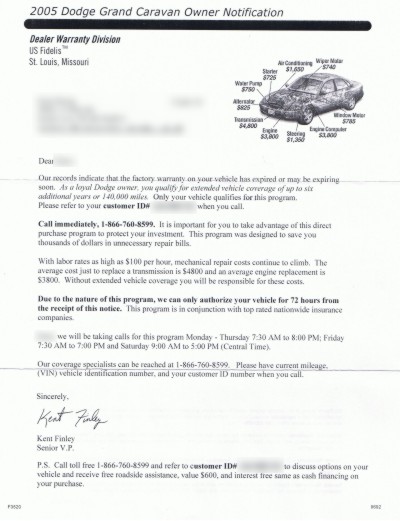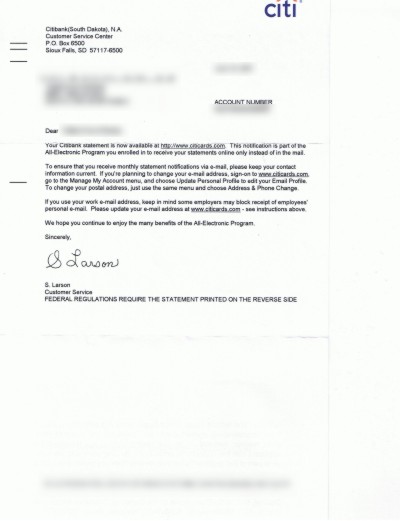I get a quarterly publication from a brokerage company. The issue before the presidential election had a little article thingy with the title “Will Investors Win or Lose on Nov. 4?” Now that’s just a blatant argument-starting, trying-to-be-controversial headline. It implies that one side of the election will cause investors to lose money and the other side will cause gains.
But the text just under the headline shows that investors have come out ahead under both parties. So the headline should have been “Which Political Party Has Been Better For Stock Market Returns?”
The article went back 6 presidents under each party (Democrats and Republicans). It started in 1933 under FDR (coincidentally, that was just after the crash of 1929 was done and the market was headed up). The results were that $10,000 invested only under Democrat presidents would grow to $315,000 whereas $10,000 invested only under Republican presidents would grow to only $74,000. The Democrats had 40 years of presidencies and the Republicans had 36. Even if I removed 4 years of Democratic presidency, I wouldn’t expect the numbers to be much closer. And other studies have the same results.
Those 76 years of data might be enough for a reasonably large sample, but I thought I would conduct my own investigation and go back farther. I started with the 1900 elections and checked the S&P500 (or equivalent) every 2 years, coinciding with the congressional and presidential election cycles. I had to get the 1898 stock prices too, so that I could get returns for that first election.
My results show that yes, the market has gone up more under Democrats than under Republicans. There have been papers published about this correlation, and some researchers and journalists are wondering why investors don’t notice this and invest accordingly. “Invest accordingly” would mean put money in the market under a Democrat president and take it out under a Republican.
The main answer is that the market still goes up under both. Investors know that leaving their money in the stock market long term (regardless of which party is in the White House) is the best policy. If investing were as simple as putting your money on a political party, it would have been figured out a long time ago.
I don’t know the exact method that the article writers used. Mine was rather simple and I expect it has some flaws. I started with $10,000 and had it go up or down by whatever percent the market did from the start to the end of a given term. I didn’t use exact days of the president’s terms, as did the article. My data was the price of the market, every 2 years, at the transition from one year to the next (close of December/beginning of January). But my numbers did approximate the article’s numbers, so my method was good enough for generalizations.
The article had the market returns as 5 times better under Democrats ($305,000 gain versus $60,000 gain). My results showed about 3 times better returns for the Democrats, but mine were $200,000 versus $70,000 (rounded). The article did not include inflation as a factor.
Say that the market doubled under a president. Go ahead, say it. So you started with $10,000 and ended with $20,000. That means you made $10,000 and you are $10,000 richer and can buy more stuff than you could before, right? But what if inflation totaled 100% under that president’s term, so that the cost of everything also doubled under his watch? Although your money doubled, your value didn’t. All you did was stay even. So if one president had the market go up 8% but inflation was also at 8%, should he be considered better for investors than a president who had the market increase only 6% but kept inflation to 3%? I contend not.
I factored inflation into the mix, using numbers provided conveniently by Robert Shiller, and found that returns evened out significantly. The results changed to $23,000 for the Democrats and $21,000 for the Republicans. That still had the Democrats ahead officially (1.8% annual return vs. 1.2%), but realistically there is not much difference. At least not enough on which to build an investing strategy.
The article also did not include Congress as a factor. The President of the United States of America has some power, but Congress has a lot to do with monetary policy as well. I factored Congress into the mix, using the records of the Senate and House of Representatives. Because Congress has two divisions, the results got complicated: 3 entities and 2 parties means 8 categories.
I tried to simplify things, but I still wound up with a bunch of categories. I have listed the results of what $10,000 would become under those terms, along with the annualized rate of return. I used just the years that the money would be in the market, not the time of the whole study, as that seemed better for comparison. So each category has a different time base for the annualized rates (President: Rep. 62 years and Dem. 48, House: Rep. 44 years and Dem. 66, Senate: Rep. 50 years and Dem. 60).
“n” means “not adjusted” and “i” means “adjusted for inflation”
Single Indicators:
- President Only:
Democrat: $202,000 (6.5%) n / $23,000 (1.8%) i
Republican: $79,000 (3.4%) n / $21,000 (1.2%) i
- House Only:
Dem: $342,000 (5.5%) n / $24,000 (1.3%) i
Rep: $47,000 (3.6%) n / $20,000 (1.6%) i
- Senate Only:
Dem: $143,000 (4.5%) n / $6,100 (-0.85%) i
Rep: $112,000 (5.0%) n / $51,000 (3.3%) i
Compound Indicators:
- All Three Matching:
Dem: $106,000 (5.8%) n / $22,000 (1.9%) i
Rep: $16,000 (4.0%) n / $11,700 (1.5%) i
- President Opposite Congress:
Dem. Pres, Rep. Con.: $25,000 (9.6%) n / $16,500 (5.1%) i
Rep. Pres, Dem. Con.: $17,800 (2.7%) n / $6,900 (-1.7%) i
- Mixed Bag (split Congress):
D. House, R. others: $19,300 (8.6%) n / $14,300 (4.6%) i
R. House, D. others: $8,100 (-10.6%) n / $5,700 (-24.7%) i
The best single indicator, accounting for inflation, is the Senate. The President and the House of Representatives are almost a wash when it comes to returns after inflation. But the Senate – the difference there is quite obvious. A negative return for the Democrats versus a strong positive return for the Republicans. I say strong positive because it is about twice the return rate that you’d get if you played the presidency.
And you could play around with the compound indicators some more. I wouldn’t put too much stock in the Mixed Bag category, since the second one (-25%!) was only two years. It may have no correlation to anything at all, but it’s a fact that the worst combination for the stock market was a Democratic president with a Republican House and Democratic Senate. You’re not going to be able to prove cause and effect, but you could sure make a headline out of it.
If you ever need something to do, you could waste a whole day just playing around with market returns to come up with statistics that benefit your particular party or cause. Or read someone else’s investigation of the issue. There are even futures markets for presidential elections (that’s a link to the old blog. The new one, but without that post, is here).
In conclusion, don’t trust dramatic headlines and don’t invest based solely on presidential political party. Now you can consider yourself a more enlightened investor.
“But you shall remember the LORD your God, for it is He who is giving you power to make wealth, that He may confirm His covenant which He swore to your fathers, as {it is} this day.”
– Deuteronomy 8:18

 This is Alpha, the first-born, when he was 2YO.
This is Alpha, the first-born, when he was 2YO. This is Beta, the second-born, when he was about 2YO.
This is Beta, the second-born, when he was about 2YO. This is Gamma, the third-born, when he was about 18MO.
This is Gamma, the third-born, when he was about 18MO.





